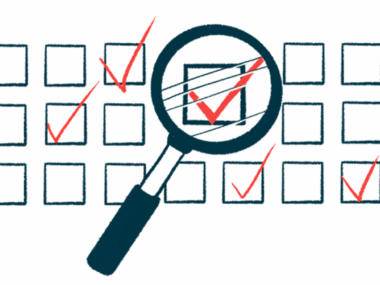Remembering my late father, who taught me how to live with MG
How Dad's diagnosis helped prepare me for my own
Written by |

My dad was born 100 years ago June 20. It’s funny that June is Myasthenia Gravis Awareness Month, as he lived the last 10 years of his life with the condition. Before that, Dad spent 40 years in the classroom teaching English. He was born a teacher. His years with myasthenia gravis (MG) taught me how one can live with the disease without letting it define them, which became especially important after my own MG diagnosis in 2020.
Let me tell you about my dad. You, too, might learn something about coping with this disease.
Dad was the finest man I’ve known. He deeply loved language and could quote Shakespeare, Homer, or Joyce the way some people quote sports statistics. He had a knack for being intellectually gifted without snobbery or a sense of superiority. He was as comfortable discussing “Othello” as he was with talking about the Bruins, or an upcoming election. Like me, his mechanical abilities were somewhat lacking. We never let him forget the time he nailed the kitchen table to the floor while ostensibly fixing it.
Despite growing up in poverty during the Great Depression and having an alcoholic father, my dad became a devoted and deeply loving parent. He loved kids and would react with disgust and disbelief to stories about harm done to a child. The crankiest infant was calmed when he held them. Grumpy teenagers responded positively to his humor and reason. He never raised his hand to a child and believed that violence never solved a problem.
Grampa Harrington’s struggles with alcohol addiction made life for his family difficult and, at times, dangerous. At 41, he died from a brain tumor, leaving my father, still a teenager, head of the family.
Despite all this, I never heard my dad speak disparagingly of my grandfather. But the wounds were there. He once said that it took him until he was in his 50s before he could forgive his dad. Dad explained that he came to understand that his father did the best he could with the cards he was dealt. This empathy endeared Dad to all who met him.
I can still see my father sitting among a stack of books, glasses off, pen in hand, reading “The Odyssey.” When we were young, he read it as a bedtime story to me and my siblings. He also read us “The Little Prince,” “The Wind in the Willows,” “The Legend of Sleepy Hollow,” and other classics. We thought all parents read such books to their kids.
Dad’s MG diagnosis was like a lightning bolt. None of us even knew what it was. With characteristic calm, he studied the disease and helped us understand it and not fear it. Like his hero Franklin D. Roosevelt, Dad showed us that “the only thing we have to fear is fear itself.”
I look back on the years Dad lived with MG, and I now understand how difficult they were for him. He struggled with fatigue, muscle weakness, and the dread that things could go to hell at any moment and require hospitalization. I could have been gentler and more understanding with him. This didn’t change his love for me. He knew that, like his father, I was doing the best I could. He showed me that sometimes, even those closest to you won’t fully understand the challenges of MG. That doesn’t change how much they love you, and it shouldn’t change your love for them.
For a long time, I asked myself the painful, useless questions that accompanied my own MG diagnosis. What did I do to cause this? Could I have done something to prevent it? Is illness punishment or retribution? Eventually I found the answers. If Dad could develop MG, then it isn’t a punishment or curse on the guilty. It’s about biology, not morality. It’s simply a fact of life, one of many we must meet with courage and a little humor.
Note: Myasthenia Gravis News is strictly a news and information website about the disease. It does not provide medical advice, diagnosis, or treatment. This content is not intended to be a substitute for professional medical advice, diagnosis, or treatment. Always seek the advice of your physician or other qualified health provider with any questions you may have regarding a medical condition. Never disregard professional medical advice or delay in seeking it because of something you have read on this website. The opinions expressed in this column are not those of Myasthenia Gravis News or its parent company, Bionews, and are intended to spark discussion about issues pertaining to myasthenia gravis.




Amy W
Your dad sounds wonderful . How old was he when he passed? What treatment did he get ? likely none of these modern ones we have now. Thanks for sharing